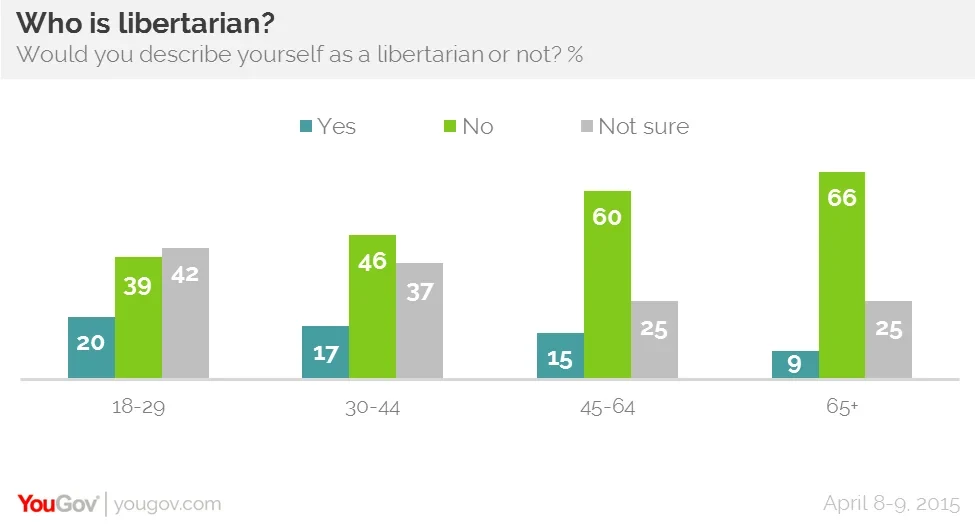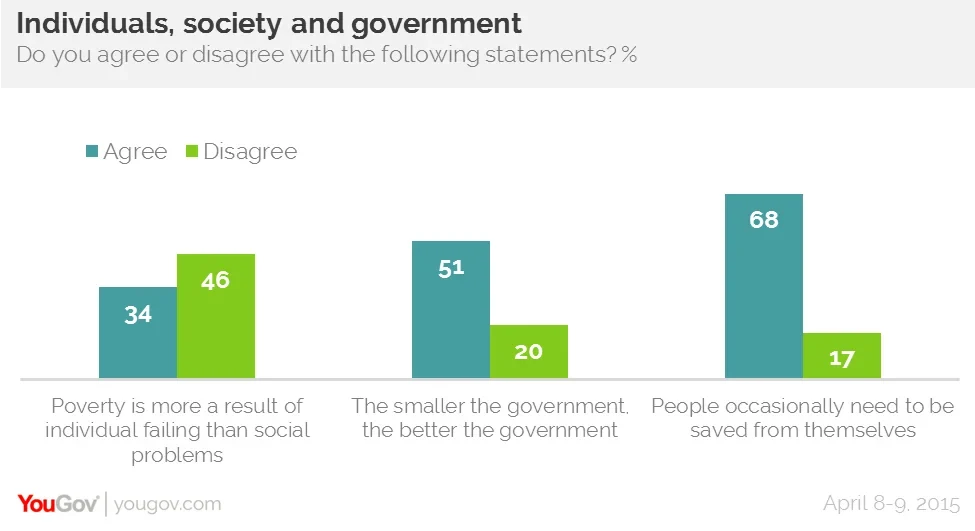One fifth of under-30s describe themselves as libertarians, but most Americans reject the label
Last week self-described libertarian and Kentucky Senator Rand Paul launched his campaign to become the Republican nominee for the 2016 presidential elections. Paul has the solid support of the Republican Party's libertarian wing, but his support for stricter limits on counter-terrorism surveillance and relaxed penalties for drug crimes risks alienating the more socially conservative elements of the Republican Party.
YouGov's latest research shows that, overall, 15% of Americans say that they would describe themselves as a libertarian, while 53% would not. 32% aren't sure either way. Younger Americans, however, are much more likely to describe themselves as libertarian or to be unsure of whether or not they are libertarian. 20% of under-30s describe themselves as libertarian, while only 39% of the Millennial age group reject the label of libertarian.

There is little difference between partisans when it comes to identifying as libertarians. Republicans (13%) are essentially no more likely than Democrats (12%) to identify as libertarian, while 19% of independents describe themselves as libertarian. Overall, people with household incomes over $80,000 a year (22%) and men (21%) are the most likely to say that they are libertarian.
Most Americans (51%) agree with the core idea of libertarianism that smaller governments are better governments, but that they are less convinced about other ideas common in libertarian circles. Americans tend to disagree (46%) rather than agree (34%) with the idea that poverty is generally more a result of individual failing than social problems. A large majority of Americans (68%) also agree with the idea that people occasionally need to be saved from themselves, something somewhat at odds with the libertarian idea that people should be free to do what they want, even if it damages them, as long as they are not hurting others.










